Battle of the Sexes: A Politically Correct Biopic
A somewhat bland, politically correct biopic about the famous tennis match that shaped America’s perception of women’s tennis.
Leading American tennis player Billie Jean King (Emma Stone) is frustrated by the fact that women in her sport receive significantly less prize money than men, despite drawing equal viewership. When the Tennis Association presents King with yet another insulting offer, she and her friends decide to create their own championship in 1973. Meanwhile, former men’s tennis champion Bobby Riggs (Steve Carell) devises a plan to reclaim his place in the headlines. He publicly declares that women’s tennis is inferior to men’s and confidently asserts that he can defeat any of the world’s top female players, even though they are half his age. When King’s main rival suffers a crushing defeat against Riggs, Billie Jean realizes that she must defend the honor of women’s tennis at all costs. Simultaneously, King finds herself increasingly drawn to hairdresser Marilyn (Andrea Riseborough), more so than to her husband, Larry.
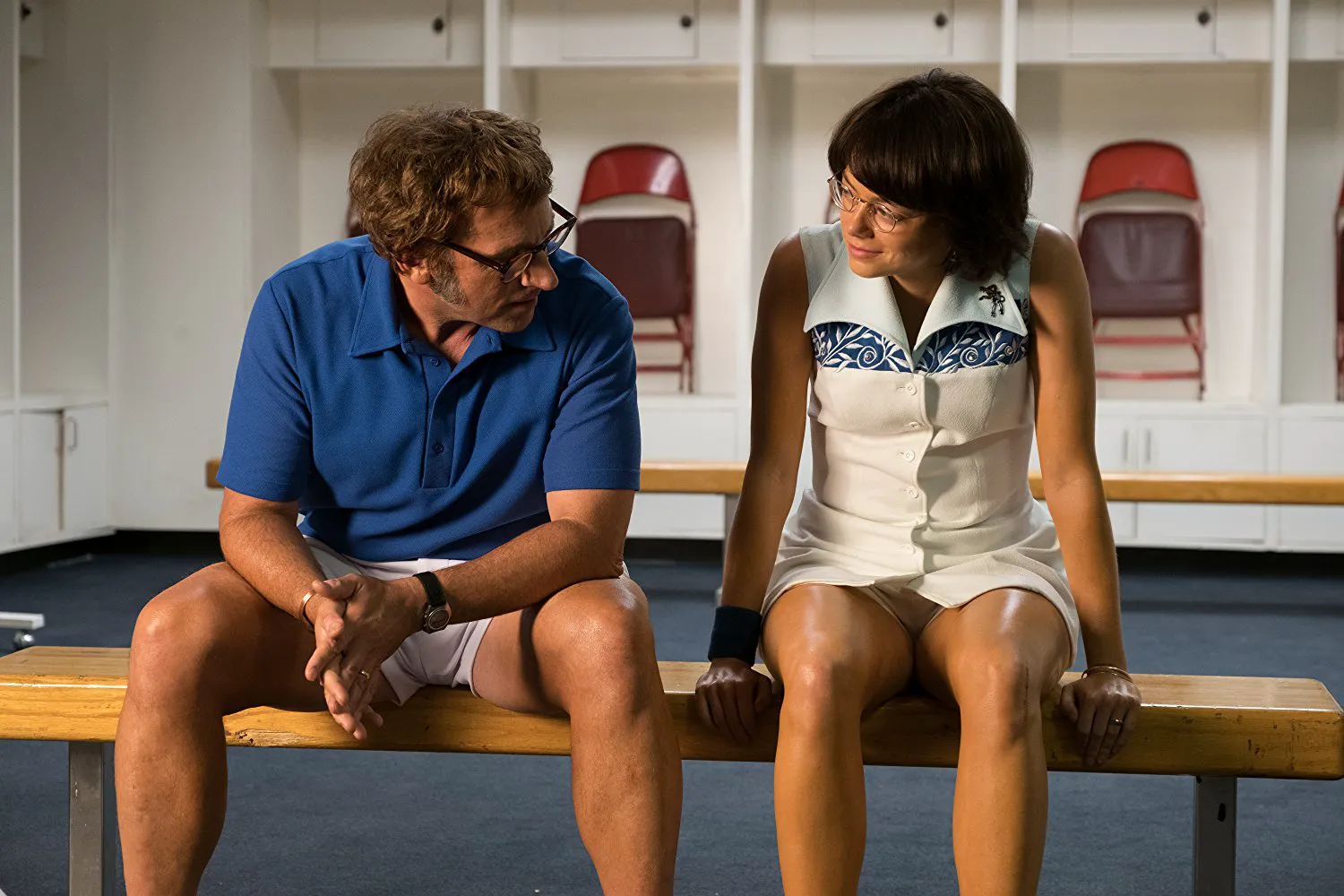
As we often point out, one of the primary goals of Hollywood historical films is to remind us of the hardships of the past and to celebrate those who paved the way for a brighter, more progressive present. “Battle of the Sexes” focuses on one of the leading tennis players of the 20th century, who became a prominent American advocate for equality in sports, achieving both symbolic and tangible political and financial gains.
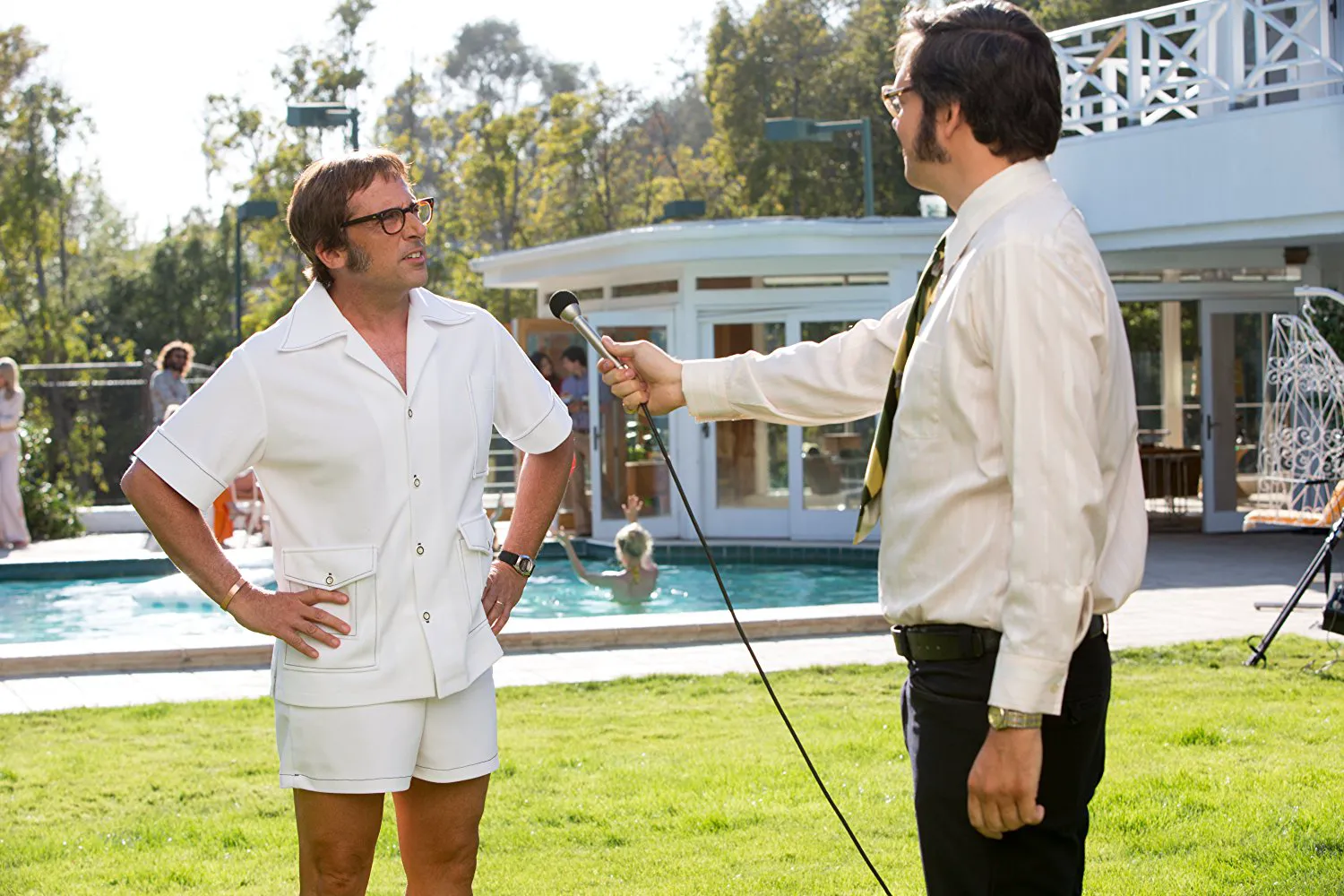
In the tennis scenes, Steve Carell’s stunt double was Vince Spadea, who was ranked among the top 20 tennis players in the world in the 2000s.
Given this ideological framework, the new film by Jonathan Dayton and Valerie Faris (“Little Miss Sunshine,” “Ruby Sparks”) is primarily a political statement. Emma Stone, as King, delivers speeches about the need to respect and fairly compensate female athletes, while Steve Carell and Bill Pullman, playing veteran tennis players, appear pathetic or repulsive as they defend “male chauvinism” and insist that women are not suited for professional sports. The film also reminds us that in the 1970s, athletes could not openly acknowledge their “non-traditional” sexual orientation, and that famous gay and lesbian individuals were forced to meet their lovers in secret. Otherwise, they risked losing their livelihoods, as their contracts depended on maintaining a facade of a “proper” life.
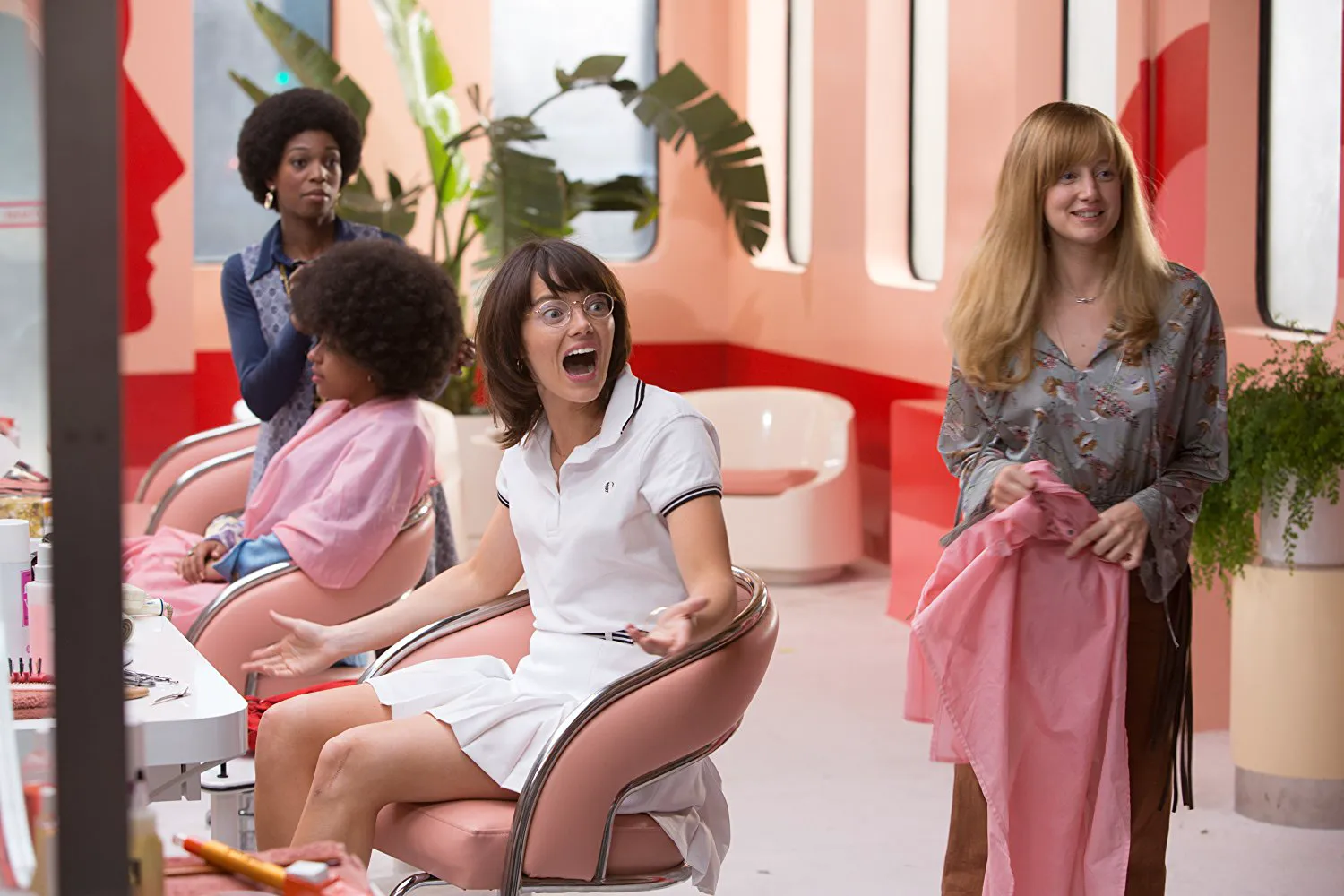
Billie Jean King was scheduled to attend the 2014 Sochi Olympics as part of the American delegation, but she stayed home due to her mother’s death.
Lack of Drama
“Battle of the Sexes” is heavy on political correctness but lacks the drama one might expect from a film about sports and love. The romantic triangle involving King, her husband, and her lover unfolds with little melodrama, as the tennis player’s spouse proves to be surprisingly understanding and supportive, sparing Billie Jean from having to make any “impossible choices.” Consequently, this aspect of the film is only interesting because Emma Stone portrays a lesbian and briefly shares a bed with another attractive woman.
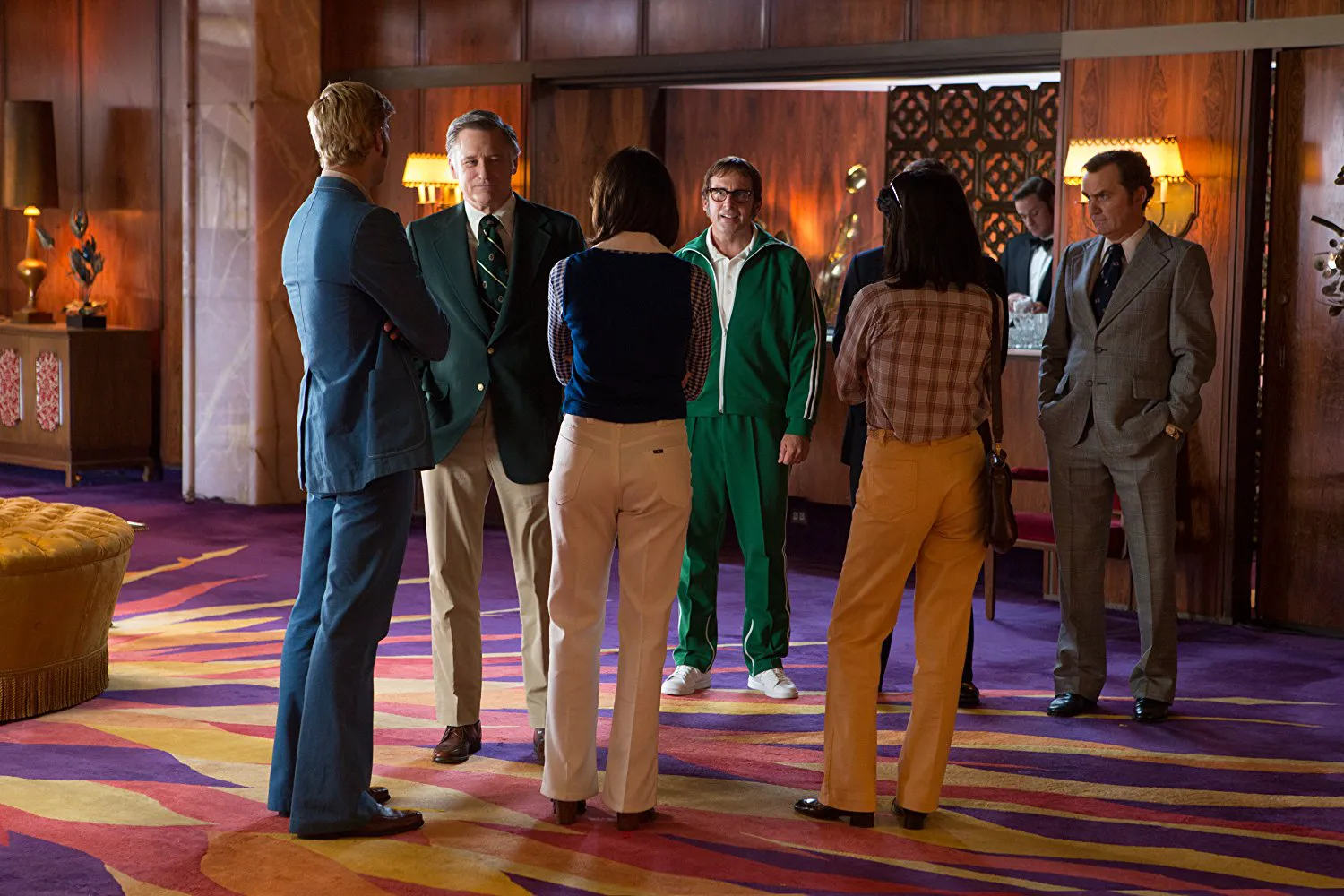
As for the main sports storyline, the characters spend very little time on the court, and the tennis scenes lack the intensity typically found in boxing, football, or baseball films. Of all the matches shown on screen, only the climactic showdown evokes strong emotions, but even those pale in comparison to the feelings one experiences while watching the finale of “Rocky” and similar films. The film quickly reveals who will win and why, and a significant portion of the match feels like a predictable formality.
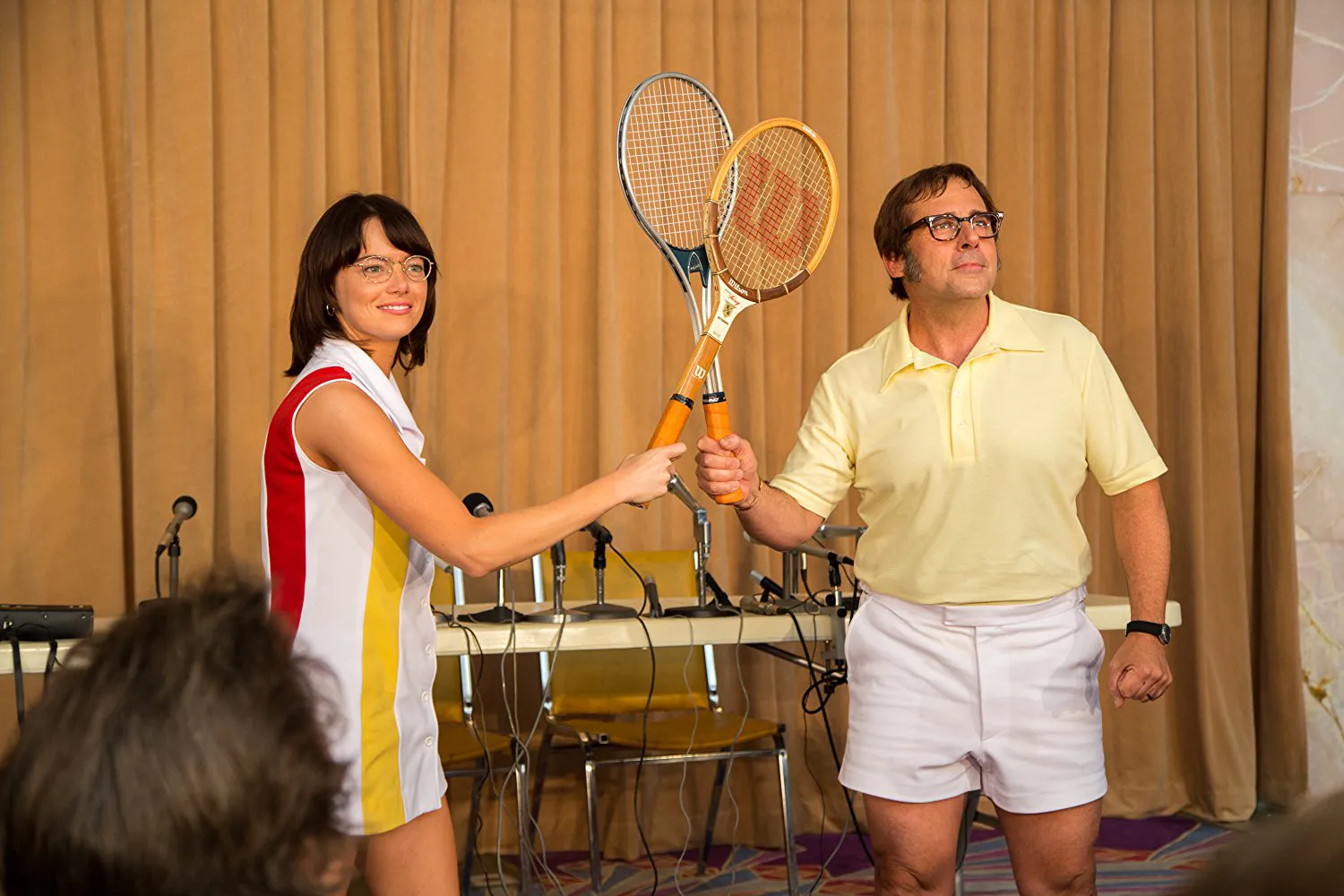
Performances
However, not everything is negative. Emma Stone delivers a compelling performance as a remarkable yet not particularly attractive or emotionally resilient athlete, a rare instance of the actress fully immersing herself in a role rather than offering another variation of her standard “sarcastic redhead beauty” persona. Steve Carell, on the other hand, excels at portraying an aging sports manipulator who is both comical and tragic in his attempts to maintain public attention and preserve his marriage with a wife who disapproves of his public antics and gambling habits. While the film focuses more on King, Riggs is a more vibrant and intriguing character, and his portrayal is more candid, as the film does not attempt to elevate the former champion to a pedestal.sec
In conclusion, if you appreciate Carell’s work, are interested in Emma Stone’s artistic evolution, and have an interest in the history of tennis and feminism, then “Battle of the Sexes” is worth your time. Otherwise, the film can be safely ignored. It is an ideologically sound but not particularly captivating or outstanding piece of cinema.
vanov